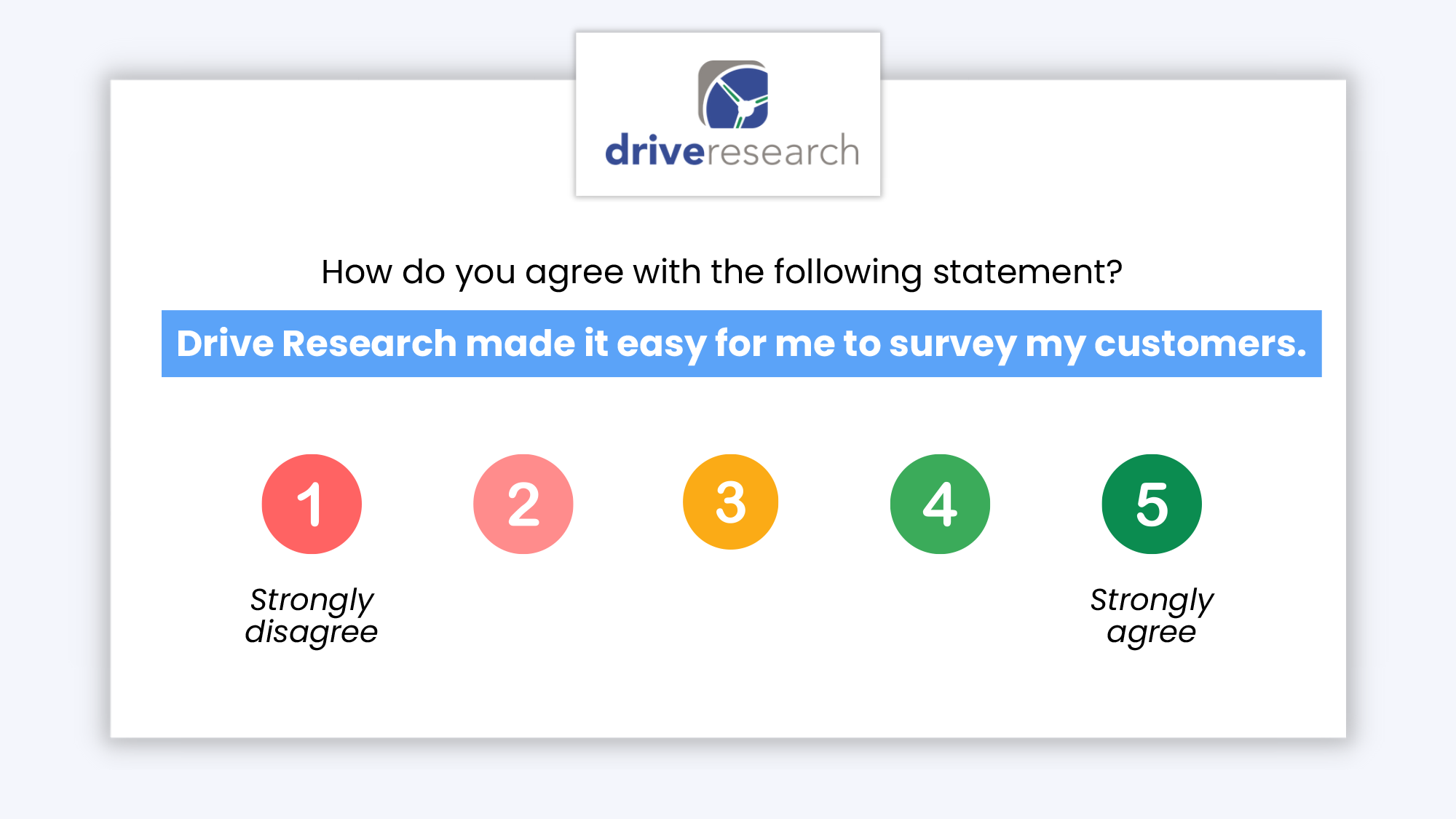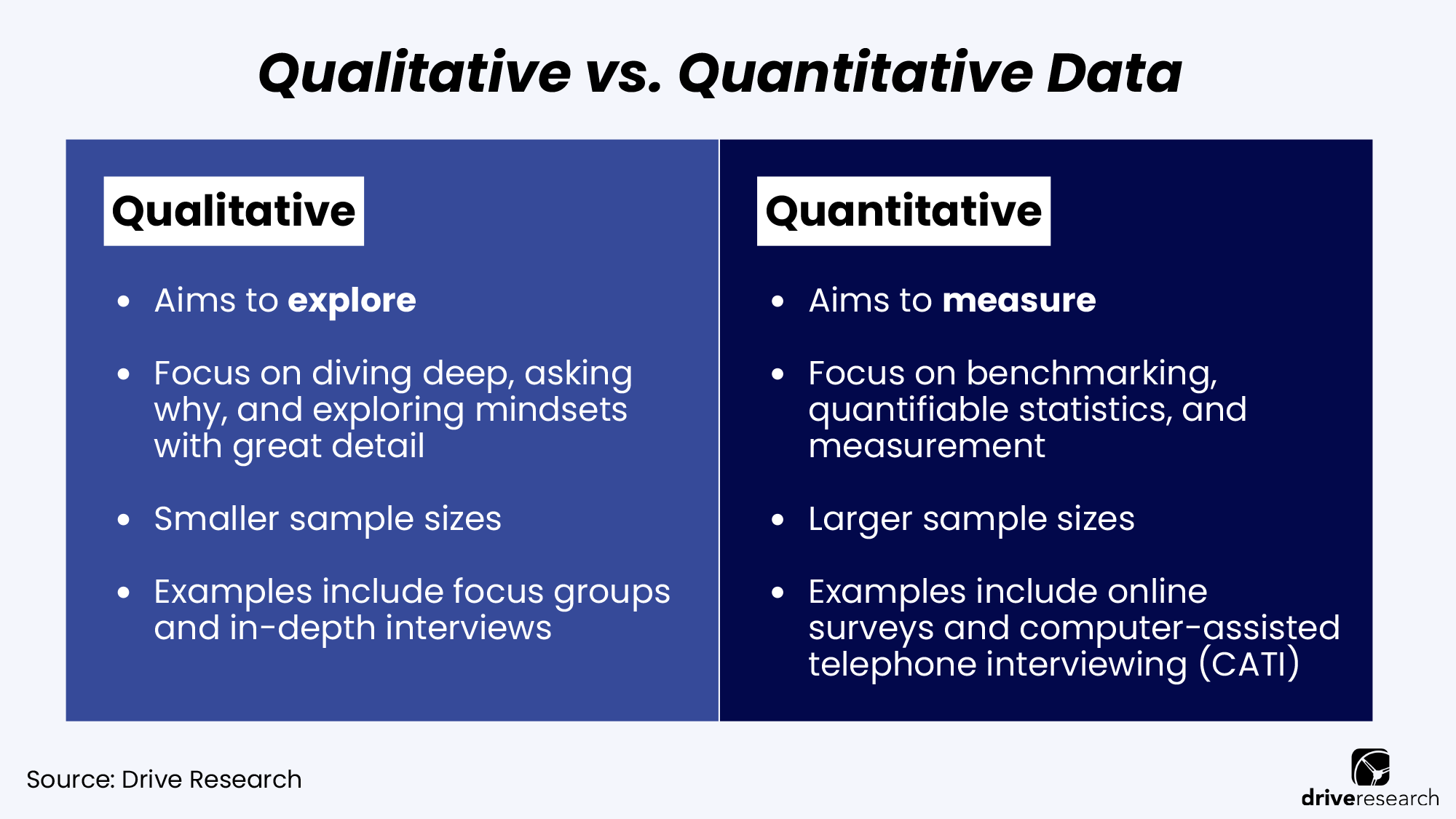
Concept testing is the data king of new product development. It's a common process that's used to gauge potential market reception before a product ever hits the shelves.
Think of it as a predawn litmus test for the viability of an idea, be it a physical object, a service, or a campaign.
In our experience, doing concept testing with different companies, we've observed that concepts honed through such testing often lead to products that not only meet market needs but also resonate deeply with consumers.
Surprisingly, what emerges from this stage is more than just a clear direction. Often, we uncover insights that transform the entire trajectory of a product's development.
What is Concept Testing in Market Research?
When we discuss concept testing in market research, we're referring to the strategic process used to evaluate consumer response to an idea before introducing a product or service to the market.
Typically in concept testing, discovering customer needs and preferences, helps guide development toward more successful outcomes.
At its core, the method involves presenting a concept—a product, service, advertisement, or packaging—to target consumers to gather their feedback.
Why Concept Testing is Important
In our work, we've observed that concept testing stands at the forefront of informed decision-making.
It serves as a crucial filter that sifts through fledgling ideas, pinpointing what resonates with the audience before additional resources are invested.
Let’s unpack why it’s a cornerstone of our market research efforts.
Spot check potential issues early on
We find concept testing invaluable because it enables us to catch problematic ideas early on.
It's prudent to consider that even the most groundbreaking visions may encounter resistance or disinterest.
For instance, Gartner reports that misguided management decisions can be pricey, but concept testing helps mitigate such financial risks.
Gauge the pulse of the market
Moreover, by collecting consumer feedback, we effectively gauge the pulse of the market.
There’s an allure in discovering how a concept aligns with consumer needs, inviting perspectives without restrictive expectations.
By understanding preferences, we tailor products that hit the mark, potentially improving conversion rates.
Pivot quickly
From a strategic viewpoint, it equips us with the agility to pivot quickly. Imagine two or three variations of an advertisement — ad concept testing aids us in choosing the one which captivates our target audience best.
It’s why it's a boon for product managers, UX designers, and marketers alike when it comes to making data-driven decisions.
It’s about assuring that when the rubber meets the road, your product is the one the market embraces.
Different Types of Concept Testing
In our work with concept testing, we've identified several methodologies that serve distinct purposes in the innovation process.
Companies can get the most valuable insights by selecting the appropriate type of concept testing based on their specific goals.
Comparison
Comparative concept testing entails presenting several concepts simultaneously to the target audience, aiming to identify preferences.
Our experience has shown that this method reveals direct competition between ideas, allowing us to discern the features or offerings that resonate most with consumers.
Sequential
Sequential concept testing involves showing one concept at a time in a sequence.
We've found this method particularly useful for evaluating each concept on its own merits before moving on to the next, without the influence of direct comparison to others. It’s a way to gauge individual impact without bias.

Monadic
The monadic testing approach is one where a single concept is presented to the respondents. It offers in-depth feedback on one specific idea.
Companies often use this method, in our experience, when they want to understand the potential market reception of one developed concept with high detail.
In monadic testing, one concept is evaluated at a time to assess its strength in isolation. We have found this approach particularly effective in situations where focus and detailed feedback on individual elements are crucial.

Proto-monadic
In proto-monadic testing, as we've observed, respondents first evaluate a concept independently (monadic phase) and then in comparison to others (comparison phase).
This hybrid approach allows companies to get both in-depth feedback and competitive positioning for their concepts, making it quite a comprehensive testing technique.
How To Design a Concept Testing Survey
In our work with concept testing, we've honed a survey design process that maximizes feedback quality and actionable insights.
To share our best practices, let's walk through the essentials of creating a complete concept testing survey project.
1. Set Goals
First off, we nail down what we're trying to learn. Is it the general appeal of a product, or specific features and their usability?
By setting clear objectives, we ensure that every question is purposeful and aligned with our survey's end goal. This step is fundamental; it shapes the survey's scope and keeps us on track for relevant results.
2. Decide On Design/Programming
Once goals are set, we decide whether the survey will be monadic, where each participant sees one concept, or sequential, showing multiple concepts to the same participant.
This decision impacts how we program the survey and often hinges on the depth of feedback we're after versus the breadth of insights across several concepts.
3. Include Scales or Ratings
For quantifiable data, scales or rating systems are indispensable.
We typically use a Likert scale ranging from "Strongly Disagree" to "Strongly Agree" to measure responses consistently.
Including these scales allows us to gauge participant sentiment with precision and compare results effectively.

4. Include Images or Graphics
A concept isn't always something you can easily summarize in text. Including images or graphics can give respondents a clearer understanding of what they're evaluating.
This might be a prototype image, a service flowchart, or anything visual that conveys the concept more effectively than words alone.
5. Use Identifying Questions
Lastly, we segment our audience with demographic questions. These help us understand which particular concept resonates with which segment of our target market.
It’s essential to design these questions to be as unobtrusive as possible while still gathering the necessary information for insightful analysis.
When To Use Concept Testing
Product Testing
When developing a new product or iterating an existing one, it’s great to employ concept testing to understand market needs and preferences.
For instance, testing a new feature to determine if it aligns with the user's desires or solves a particular problem they face.
It's about getting a read on functionality and overall product-market fit and concept testing can help determine if a new idea is great for your product or not.
Recommended Reading: How to Measure the Appeal of a New Product Concept
User Experience
In our experience, concept testing is pivotal for assessing user interaction with a product or service's design and usability. Sometimes, what seems intuitive to us as a company can be perplexing for users.
Through concept testing, it's possible to validate design decisions and ensure the user journey is as smooth as initially thought.
Ad Testing
Before launching a campaign, testing advertising concepts to predict how they will be received by the target audience can be a way to maximize your advertising budget.
A commercial that's clear, engaging, and aligns with the audience's values is more likely to succeed—concept testing helps confirm with data that it’s likely to be successful.
Explore more benefits of ad concept testing surveys in our video.
Brand Perception
We've also found concept testing valuable for measuring potential changes to brand perception.
Whether considering a new logo or a tagline shift, it's useful to test these concepts to see if they resonate with customers and convey the intended message.
Pricing Research
Concept testing isn't just about products and services; it's also about finding the sweet spot for pricing.
It’s great for testing various pricing models and strategies to pinpoint what the market is willing to pay, ensuring that companies don't undervalue their offers or price themselves out of competition.
How To Run A Concept Testing Project Like a Pro
Choose The Right Method
In our experience working with concept testing, selecting the right method has been pivotal. Whether qualitative interviews or quantitative surveys, each serves distinct purposes.
For nuanced feedback, we often rely on one-on-one interviews, while surveys grant us quantitative backing to validate broader trends.

Write The Best Questions
Crafting questions that hit the mark requires precision.
Questions should be direct, unambiguous, and tailored to elicit the specific responses necessary to inform decision-making processes. We always put a special emphasis on this part of the process.
Since the questions will likely determine how well your data can help your business, the questions are essentially the money-maker.
Even if you do concept testing on your own as a company, it’s worthwhile to use market research experts to help write the questions.
Prioritize Respondent Experience
Programming setup can sometimes make or break a study. Ensuring that the survey flows logically and is accessible across devices respects respondents' time and increases completion rates.
We've found incorporating specific types of logic jumps and other types of survey programming can really make the user experience better and often leads to higher quality data from better, more passionate responses.
Have Super In-Depth Data Analysis
At the end of the day, it's the depth of analysis that uncovers gems. Our team always takes a comprehensive approach, looking beyond top-line numbers to understand underlying trends and correlations.
It’s more than just looking at the numbers and deciding on a correlation but actually assigning key and valuable insights to a company and how they can directly use that information in their marketing and business strategy to maximize their profits.
Avoid These Things For A Successful Project
In our work on concept testing, we've discovered certain pitfalls that can derail the success of a project.
Steering clear of these mistakes ensures the integrity of your test and the usability of your findings.
Don't Isolate Too Much
It's tempting to examine a concept in a vacuum to control variables, but in practice, this can lead to skewed results.
We've learned it's crucial to consider the broader context of the market and the consumer's everyday environment.
Understanding where your concept sits in the broader ecosystem will give you a truer sense of how it might perform.
Don't Test Everything At Once
A common misstep is to present multiple concepts simultaneously to gauge the 'best' one. This overwhelms participants and muddles results.
Stick to assessing one concept at a time; this approach, usually known as monadic testing, has proven to yield more precise and actionable data for certain projects.
The key is to not do too much all at once.
Don't Throw Away The Data
After a concept test, resist the urge to discard data that doesn't support your initial hypothesis.
Our analyses have revealed that this 'negative' data often contains insights that lead to significant improvements. These findings can be the key to refining your concept and making it more market-ready.
Don't Assume Anything
In the world of concept testing, assuming knowledge of your audience's preferences can be a project’s downfall. We've noticed that stakeholders often project their biases onto the data.
Instead, let the data speak for itself and guide decisions without preconceptions. If you have data experts, listen to them and take their advice truthfully.
Final Thoughts
Statistics often back the power of concept testing; real-world examples show time and time again that products refined through consumer feedback have a higher success rate.
It's an arena where the subjective meets the quantitative, with sometimes surprising revelations about what truly resonates with consumers.
Businesses are sometimes shocked by what they find the results to be but great companies will trust the data.
They often find that insight into a customer's future purchase decisions invaluable. It enables them to make data-informed decisions, increasing the probability of a successful launch.
In our experience, we find few secrets more valuable than understanding that concept testing is as much about rejecting unviable ideas as it is about refining good ones.
It's a nuanced field where a simple tweak in design or messaging, identified through testing, can turn potential failure into a market triumph.
Contact Our Concept Testing Market Research Company
Businesses and marketers seeking a successful launch will find concept testing to be their ally. It primes the stage for a product's journey, from idea to tangible success in the marketplace.
Drive Research is a global market research company specializing in various concept testing methodologies.
From concept testing a new product to analyzing different advertising deliverables, our team can provide you with the insights needed for a successful launch.
To learn more about our services, contact Drive Research today.
- Message us on our website
- Email us at [email protected]
- Call us at 888-725-DATA
- Text us at 315-303-2040

Austin Parker
Austin has an extensive background in SEO as he's been blogging since 16 years old back when the internet was in its infancy. As fitting, he holds a Bachelor's degree in English with a concentration in creative writing.
Learn more about Austin, here.

